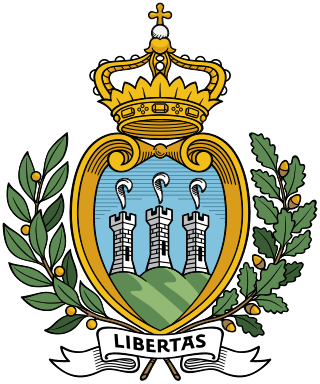Related Research Articles

The Nationalist Republican Alliance is a conservative, center-right to right-wing political party of El Salvador. It was founded on 30 September 1981 by retired Salvadoran Army Major Roberto D'Aubuisson. It defines itself as a political institution constituted to defend the democratic, republican, and representative system of government, the social market economy system and nationalism.
The Democratic Party is a centre-right political party in Bulgaria led by Alexander Pramatarski. The party was a member of the European People's Party (EPP).
The Russian Party in Estonia was a minor political party in Estonia.

General elections were held in Bangladesh on 3 March 1988. They were boycotted by several major parties, including the Bangladesh Awami League, the Bangladesh Nationalist Party, the Communist Party of Bangladesh, Jamaat-e-Islami Bangladesh, the Bangladesh Krishak Sramik Awami League, the National Awami Party (Muzaffar) and the Workers Party of Bangladesh. The result was a victory for the Jatiya Party, which won 251 of the 300 seats. Voter turnout was 52%.
A referendum on military rule was held in Bangladesh on 21 March 1985 in order to confirm the military rule of Hussain Mohammed Ershad, the Army Chief of Staff who had seized power in 1982. The referendum asked voters "Do you support the policies of President Ershad, and do you want him to continue to run this administration until a civilian government is formed through elections?"
General elections were held in Italy on 26 October 1913, with a second round of voting on 2 November. The Liberals narrowly retained an absolute majority in the Chamber of Deputies, while the Radical Party emerged as the largest opposition bloc. Both groupings did particularly well in Southern Italy, while the Italian Socialist Party gained eight seats and was the largest party in Emilia-Romagna. However, the election marked the beginning of the decline of Liberal establishment.

Presidential elections were held in Bangladesh on 15 October 1986. The result was a victory for incumbent Hussain Muhammad Ershad, who had assumed the office in 1983 following a military coup. Ershad reportedly won 84.1% of the vote with a voter turnout of 54.9%. However the elections were controversial as they were boycotted by all major opposition candidates and there were reports of irregularities.
General elections were held in Siam on 7 November 1937 to elect 91 members of the 182-seat House of Representatives, with the other 91 appointed by King Ananda Mahidol. Unlike the 1933 elections, which had been carried out on an indirect basis, the 1937 elections were direct.

General elections were held in Saint Vincent and the Grenadines on 9 December 1974. The result was a victory for the Saint Vincent Labour Party, which won ten of the 13 seats. Voter turnout was 63.2%.
The People's Political Party was a political party in Saint Vincent and the Grenadines. It was established in 1952 as a breakaway from the ruling Eighth Army of Liberation, and was the country's first lasting nationwide political party. It was the only party to contest the 1954 general elections and received three of the eight seats. In the 1957 elections it received almost half the national vote and won five of the eight seats. In 1961 it remained in power with six of the nine seats.

Parliamentary elections were held in Portugal on 16 December 1934, the first following the establishment of the one-party state known as the Estado Novo. The National Union was the only party to contest the elections, and no opposition candidates were allowed to run. It subsequently won all seats in the National Assembly, three of which were taken by women.

Parliamentary elections were held in Portugal on 30 October 1938. The country was a one-party state at the time and the National Union was the only party to contest the elections, with no opposition candidates allowed to run.

Parliamentary elections were held in Portugal on 1 November 1942. The country was a one-party state at the time and the National Union was the only party to contest the elections, with no opposition candidates allowed to run.

General elections were held in San Marino on 5 September 1943. After the former ruling party, the Sammarinese Fascist Party had been dissolved on 28 July, the "Lista Unica" was formed by a coalition of political leaders and non-partisans. It won all 60 seats.

The People's Liberal Party was a political party in Bulgaria.

The Liberal Party, also known as the Radoslavists was a political party in Bulgaria from 1887 until 1920.
The People's Party was a political party in Bulgaria between 1894 and 1920.

The Farmers' Assemblies was a conservative political party in Estonia. Led by Konstantin Päts, it was one of the ruling parties during most of the interwar period.
The Landlords' Party, also known as the House Owners' Party, was a political party in Estonia.
The Estonian Socialist Workers' Party was a political party in Estonia.
References
- 1 2 Dieter Nohlen (2005) Elections in the Americas: A data handbook, Volume I, p595 ISBN 978-0-19-928357-6
- ↑ Nohlen, p601